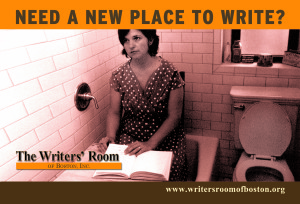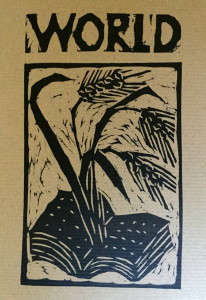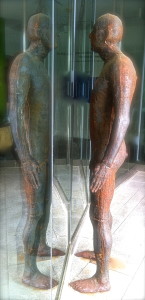At the beginning of May, I had the opportunity to go to a talk with Clint Smith, writer and scholar, and Jesmyn Ward, author of “Sing Unburied Sing.” I hadn’t read Jesmyn Ward’s latest book yet, but I was excited to hear her talk about it. She‘s been heralded as the William Faulkner of our time and the reviews of her book have suggested that she truly crafts beautiful narratives, especially in characters that are heavily flawed.
Jesmyn Ward talked about how she read a Psychology Today article that expressed that those who read fiction are likely to have an increased sense of empathy. I was surprised by this stat because I would have imagined that perhaps non-fiction or memoir would have this effect on readers. But fiction, being entirely imagined, seems to be the genre of writing that contributes to a shift in empathy amongst readers. I wouldn’t, by any means, identify myself as a fiction writer, but I do have a strong desire to write fiction. I have pieces of fiction tucked away in my computer and in the crevices of my mind. There are stories brewing yet to be created, yet I’ve always had this urgency to write poetry and non-fiction as a way of truly talking about an issue, injustice, or conflict that needs an empathetic perspective.
Hearing Jesmyn Ward talk about how fiction can create a heightened sense of empathy, was for me, novel and exciting, but also a challenge. Perhaps this is the time for me to write a new world, that a reader can enter, develop their own relationship with, and construct their own sense of understanding. Maybe it’s time I stop talking about how true and real pain is and why it deserves empathy, and construct an experience for a reader where they feel the pain, or experience it with a character that hasn’t been written before.
I decided to do a little research on what Jesmyn Ward talked about, in relation to fiction. The Scientific American provided the following quote:
“Although literary fiction tends to be more realistic than popular fiction, the characters disrupt reader expectations, undermining prejudices and stereotypes. They support and teach us values about social behavior, such as the importance of understanding those who are different from ourselves.”
There’s something inherently disruptive about constructing your own world within art. The very act of being a black woman writer and writing a story that is entirely yours is also disruptive. At the end of listening to Jesmyn Ward I found myself not only inspired, but challenged to go even further as a writer. Yes, I carry a responsibility to tell a story but perhaps I have a responsibility to craft a world that speaks to my experience and that challenges readers to enter that existence. Perhaps that is powerfully done within fiction, but maybe it can be tackled in poetry and non-fiction. Maybe empathy doesn’t just arise from a character but perhaps the readers’ understanding of a world, outside of themselves, and the injustices that can occur in those worlds. In turn, maybe this is how we gain more empathy as a society. It’s a challenge as a writer, who likes to stay true, but perhaps there’s a world that can be created where this truth shines, lives and begs to be heard.
–2018 WROB Gish Jen Fellow Tatiana M.R. Johnson
 Awards for the Emerging Writers Fellowship Program are based on the quality of a submitted writing sample, a project description, a CV or resume, and a statement of need. The Fellowships are open to writers working in any genre or form. Fellows must be committed to: using the Room on a regular basis throughout the 12-month period, writing a minimum of 6 blog posts for our website, and assisting with WROB readings and events.
Awards for the Emerging Writers Fellowship Program are based on the quality of a submitted writing sample, a project description, a CV or resume, and a statement of need. The Fellowships are open to writers working in any genre or form. Fellows must be committed to: using the Room on a regular basis throughout the 12-month period, writing a minimum of 6 blog posts for our website, and assisting with WROB readings and events. I’m 38,000 feet over the eastern seaboard somewhere between Boston and Miami, on a cramped and noisy jet plane, sitting next to a man who smells strongly of body odor and Aqua Velva. Flight attendants are moving up and down the aisle, delivering drinks and snacks, and a gaggle of passengers are milling about a few rows up, in line for the lavatory.
I’m 38,000 feet over the eastern seaboard somewhere between Boston and Miami, on a cramped and noisy jet plane, sitting next to a man who smells strongly of body odor and Aqua Velva. Flight attendants are moving up and down the aisle, delivering drinks and snacks, and a gaggle of passengers are milling about a few rows up, in line for the lavatory.




